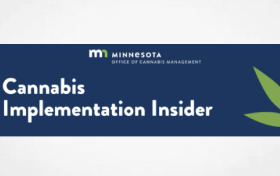The Corporate Transparency Act (CTA), a critical component of the Anti-Money Laundering Act of 2020, has new mandatory reporting requirements for most business entities. This article outlines key aspects of the CTA and provides guidance on compliance.
Purpose and Scope
The CTA aims to enhance financial transparency and combat illicit activities by mandating the disclosure of beneficial ownership information to the Financial Crimes Enforcement Network (FinCEN). This legislation primarily affects corporations, limited liability companies (LLCs), and similar entities formed through state filings.
Reporting Requirements
Businesses subject to the CTA must report specific information about their beneficial owners and company applicants. A beneficial owner is defined as an individual who:
- Exercises substantial control over the entity, or
- Owns or controls not less than 25% of the ownership interests.
Required Information
For each beneficial owner and company applicant, the following must be reported:
- Full legal name
- Date of birth
- Current residential or business address
- Unique identification number from an acceptable government-issued document
- Image of the identification document
Compliance Deadlines
- Business entities in existence before January 1, 2024: File by January 1, 2025
- Business entities formed on or after January 1, 2024: File within 30 days of formation
Exemptions
Certain businesses are exempt from reporting, including publicly traded companies, banks, and other specified regulated entities. We advise consulting with an attorney to determine if your entity qualifies for an exemption.
Non-Compliance Consequences
Failure to comply with CTA reporting requirements may result in:
- Civil penalties: Up to $500 per day of violation
- Criminal penalties: Fines up to $10,000 and/or imprisonment for up to two years
Conclusion
While the CTA imposes new obligations on many business entities, timely compliance will mitigate legal and financial risks. Kight Law is prepared to assist you with navigating these requirements and ensuring your entity’s adherence to the CTA.
We strongly recommend reviewing your business entity’s structure and ownership in light of these new regulations. Should you have any questions or require further clarification on how the CTA applies to your specific situation, please do not hesitate to contact our office.
To assist our clients in complying with the CTA, we will need the following specific information:
- Entity Information:
- Legal name of the entity
- Type of entity (e.g., corporation, LLC)
- State of formation
- Date of formation
- Business address
- Beneficial Owner Information:
- Full legal name
- Date of birth
- Residential address
- Identification number and type (e.g., driver’s license, passport)
- Scanned copy of the identification document
- Percentage of ownership or control
- Company Applicant Information (if different from beneficial owners):
- Full legal name
- Date of birth
- Residential or business address
- Identification number and type
- Scanned copy of the identification document
This article is intended as general guidance and should not be construed as legal advice for any particular circumstance. We encourage you to seek personalized legal counsel for your specific needs.
July 26, 2024
![]() This article was written by Kight Law attorney Thomas Malone. Thomas’ multifaceted background and dedication to furthering his experience in cannabis industry business and policy best practices make him a valuable asset in the ever-evolving landscape of the legal cannabis industries.
This article was written by Kight Law attorney Thomas Malone. Thomas’ multifaceted background and dedication to furthering his experience in cannabis industry business and policy best practices make him a valuable asset in the ever-evolving landscape of the legal cannabis industries.

















